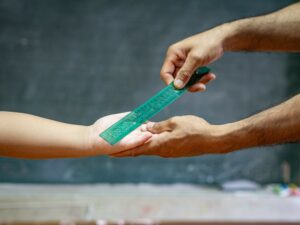system
 Written by: Family Dynamics Psychological Counselor, Lai Shun Mei
Written by: Family Dynamics Psychological Counselor, Lai Shun Mei
Every time a child does homework, he or she falsely claims to have a stomachache, to go to the bathroom, or to go to sleep. Thousands of lies and excuses. Parents who value character development are naturally outraged because they have zero tolerance for dishonesty in their children. But why do children always avoid doing their homework? Why do they have to lie to cover it up?
Often, children avoid doing homework not because they don’t want to, but because they can’t. Children want to be good and smart, but when they find out they can’t do their homework, they think they are not smart enough. They can’t accept this and will lie to cover it up and avoid it. Generally speaking, children with normal intelligence but learning disabilities will have their academic performance affected to some degree, but they can excel in other areas as well. And regardless of their intelligence level, as long as they use the right approach, coupled with the right amount of training, they can also build the corresponding ability.
But why do people lie? When a person feels that he or she is in an uncomfortable situation, he or she will activate the defense mechanism to protect himself or herself. Lying is one of the ways to cope with a crisis by avoiding it. If parents want to help their children, they should allow them to tell the truth so that they can understand what their children really don’t understand.
How do you instill in children the courage to speak the truth? You have to let your child know that even if he is not smart enough, you will still love him so much, take him as your joy, be patient with him, and find ways to help him solve his problems together, thus building up his sense of security and making him feel at ease to reveal his inner uncertainties and difficulties. On the contrary, if his experience makes him think that he is not smart enough, which will lead to his mother’s anger and complaints, he will not dare to tell the truth and even activate his self-protection mechanism to protect himself with lies that adults can uncover at first glance.
At this point, the child will not only fail to protect himself but will also get into more trouble because the mother will be rehabilitated and will take the initiative to admit her mistake and promise not to lie again. But in fact, his homework difficulties are not resolved, creating a vicious cycle. Therefore, we encourage parents to learn to accept their children’s shortcomings so that they will have confidence in you and feel safe to open up to you.













